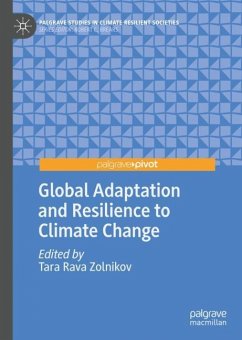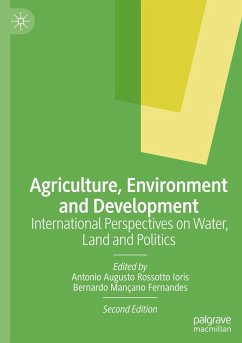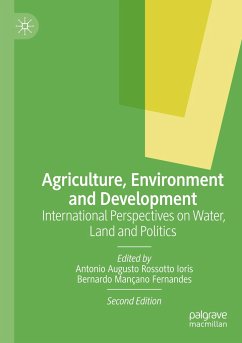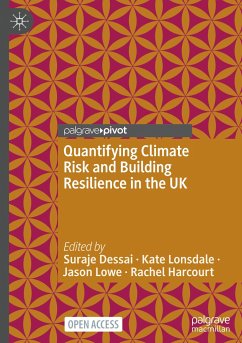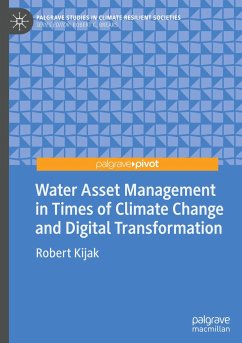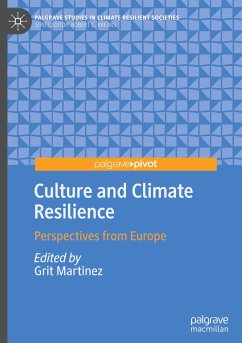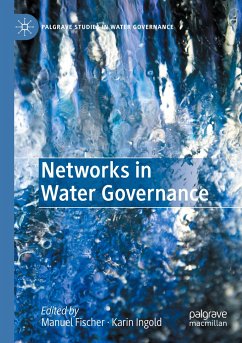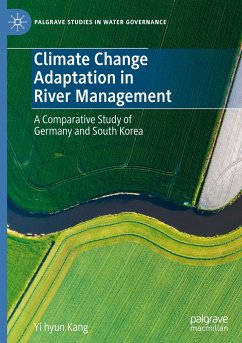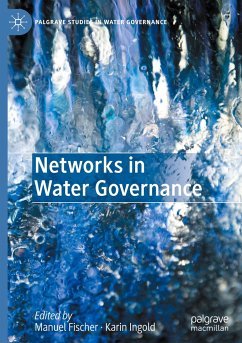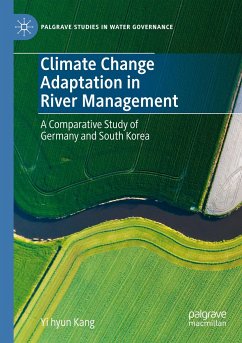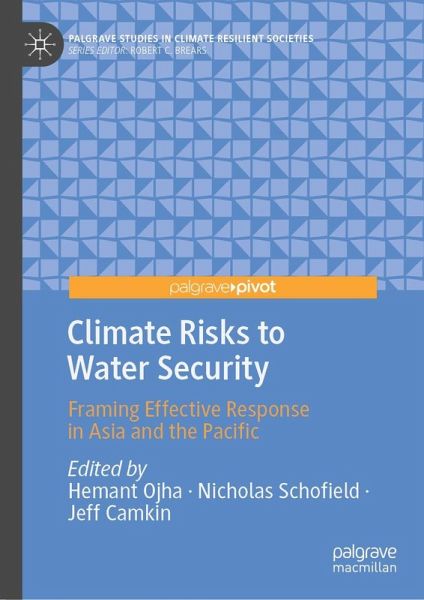
Climate Risks to Water Security
Framing Effective Response in Asia and the Pacific
Herausgegeben: Ojha, Hemant; Schofield, Nicholas; Camkin, Jeff

PAYBACK Punkte
17 °P sammeln!
In Asia and the Pacific, climate change is now a well-recognised risk to water security but responses to this risk are either under reported, or continue to be guided by the incremental or business as usual approaches. Water policy still tends to remain too narrow and fragmented, compared to the multi-sectoral and cross-scalar nature of risks to water security. What's more, current water security debates tend to be framed in discipline specific or academic ways, failing to understand decision making and problem-solving contexts within which policy actors and partitioners have to operate on a d...
In Asia and the Pacific, climate change is now a well-recognised risk to water security but responses to this risk are either under reported, or continue to be guided by the incremental or business as usual approaches. Water policy still tends to remain too narrow and fragmented, compared to the multi-sectoral and cross-scalar nature of risks to water security. What's more, current water security debates tend to be framed in discipline specific or academic ways, failing to understand decision making and problem-solving contexts within which policy actors and partitioners have to operate on a daily basis. Much of the efforts to date has focussed on assessing and predicting the risks in the context of increasing levels of uncertainty. There is still limited analysis of emerging practices of risks assessment and mitigation in different contexts in Asia and the Pacific.
Going beyond the national scales and focussing on several socio-ecological zones, this book captures stories written by engaged scholars on recent attempts to develop cross-sectoral and cross-scaler solutions to assess and mitigate risks to water security across Asia and the Pacific. Identifying lessons from successes and failures, it highlights management and strategic lessons that water and climate leaders of Asia and the Pacific need to consider. This book showcases reflective and analytical thought pieces written by key actors in the climate and water spaces. Several critical socio-ecological zones are covered - from Pakistan in the west to pacific islands in the east. The chapters clearly identify strategies for improvement based on the analysis of emerging responses to climate risks to water security and gaps in current practices. The book will include an editorial introduction and a final synthesis chapter to ensure clear articulation of common themes and to highlight the overall messages of the book.
Going beyond the national scales and focussing on several socio-ecological zones, this book captures stories written by engaged scholars on recent attempts to develop cross-sectoral and cross-scaler solutions to assess and mitigate risks to water security across Asia and the Pacific. Identifying lessons from successes and failures, it highlights management and strategic lessons that water and climate leaders of Asia and the Pacific need to consider. This book showcases reflective and analytical thought pieces written by key actors in the climate and water spaces. Several critical socio-ecological zones are covered - from Pakistan in the west to pacific islands in the east. The chapters clearly identify strategies for improvement based on the analysis of emerging responses to climate risks to water security and gaps in current practices. The book will include an editorial introduction and a final synthesis chapter to ensure clear articulation of common themes and to highlight the overall messages of the book.





